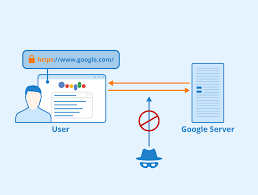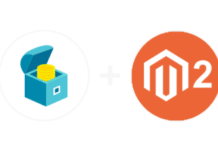Last Updated on September 15, 2022 by admin
Setting up and maintaining an anonymous VPS server is not as tricky as some of you might think. Although you don’t have to be an IT expert, you need some basic understanding of servers, and once you choose the right hosting provider, server deployment is a simple procedure.
This article aims to lower any server launching barriers even further. We’ve covered everything you need to know, including how to effectively set up, run, and maintain an anonymous VPS server. So let’s briefly describe the benefits of using an anonymous VPS and how to host your content anonymously.
Table of Contents
What is an anonymous VPS server for?
If you’re an activist, influencer, investigative journalist, or you just want to keep your personal and work life separate, an anonymous VPS has a lot to offer. These anonymous servers also make it possible for people whose acts call for protection to publish their findings and facts without facing unwanted consequences.
An anonymous VPS is not a must-have for everyone, but having one will help you to protect your privacy. Many people just don’t realise how easy it is to find a website, blog, or app owner using their IP address or payment information. And if you belong to any of the groups mentioned earlier, this might have grave repercussions.
What makes anonymous hosting anonymous?
There are no personal information or verification requirements during the setup of an anonymous VPS. No personal information may be compromised in the case of a data breach since these services don’t keep any.
All you need to sign up for anonymous VPS is just an email. This email is used only to keep you updated about any ongoing maintenance or upgrades. It’s recommended to use some anonymous encrypted email services like Protonmail or Onionmail.
Another privacy-boosting feature is cryptocurrency payment. Bitcoin claims to be untraceable, but the truth is that Bitcoin it’s only pseudonymous.
Steps to launch anonymous server
First of all, you need to choose the right anonymous hosting provider. It would be best to look for one that allows anonymous sign-up (only with email) and accepts only crypto payments. Some of the best anonymous VPS providers offer the onion address to access the control panel.
The onion domain is a top domain accessible only by the anonymous browser Tor or Brave. These browsers reroute the internet traffic through the series of random nodes of Tor network, making any tracing impossible.
Once you find your provider, select the most suitable hosting plan. Choosing the best hosting plan depends on your project requirements. If you are starting an anonymous blog or setting up an anonymous website, then general hosting plans will be ideal. CPU or RAM optimised hosting plans are designed to handle any standard workloads relying either on RAM or CPU.
The next step should be SSH key setup. If you’re unfamiliar with SSH key setup, this article “Using an SSH Key to Maintain the Security” will help you.
The last two remaining steps are payment setup and the server launching.
Many anonymous hosting providers offer a top-up system or prepaid cards that you can simply recharge by crypto. The exact monthly price is calculated based on your chosen hosting plan, and this price will be simply deducted from your credit.
Once all above is set and launched, you can access your server via the Windows command line or terminal with your private SSH key.
How to manage an anonymous server
It’s good to remember that while a VPS server simplifies many tasks, it doesn’t provide a fully automatic approach. Therefore, you should set up your backups and snapshots for the best performance, do regular maintenance, and monitor the server’s performance. Routine backups and snapshots safeguard your precious data from the worst-case scenario.
Regular backups will also make data migration simple and easy. Anonymous VPS allows you to perform any task you would do on a regular computer. The operating system you install on your anonymous VPS is essential, and users often face the issue of installing a Linux server or a Windows server.
Instead of a GUI (graphical user interface), Linux-based VPSs typically provide only a command-line interface. Using the command line requires some knowledge and experience, which may limit some users. Linux-based VPSs, on the other hand, use fewer resources and provide better value for less money.
WordPress is the world’s most popular content management system; therefore, it’s no surprise that many people utilise VPS servers for WP purposes. WordPress is often used for various projects, including website solutions, e-commerce, and personal blogs. Thanks to the well-known WooCommerce – WordPress plugin, you may launch your online sale effortlessly.
Anonymous VPS is ideal for server purposes as well. You may set up any environment on your anonymous server, such as Plex server, Nginx proxy server, or even utilise your anonymous VPS for VPN service.
In Conclusion
An anonymous VPS enables you to use these services without worrying about revealing your identity. You may host your data anonymously on an anonymous VPS, start an anonymous blog, or host an anonymous website. Customers that respect their privacy and want total control over the hosted data should choose an anonymous hosting service.
Read More: How To Protect Online Anonymity With Virtual Number



























